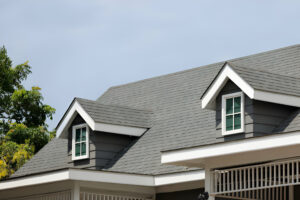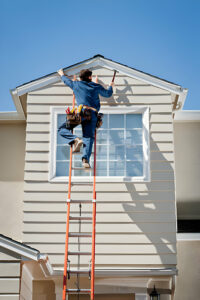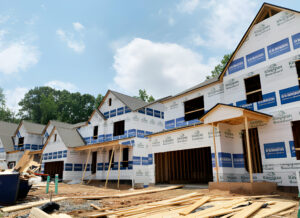A lot of homeowners choose vinyl siding doors because it is reasonably priced, long-lasting, and requires no upkeep. But, before deciding whether vinyl siding is the best option for you, it’s critical to know how long it can endure on a home.
Depending on the quality of the siding, the environment, and the amount of upkeep, vinyl siding on a home can last anywhere from 20 to 40 years. Better UV protection and thicker materials are characteristics of excellent vinyl siding, which can extend its lifespan. Installing vinyl siding in a warm climate may extend its lifespan compared to installing siding in a severe region with severe storms or temperatures. Lastly, well-kept vinyl siding will outlast improperly kept siding.
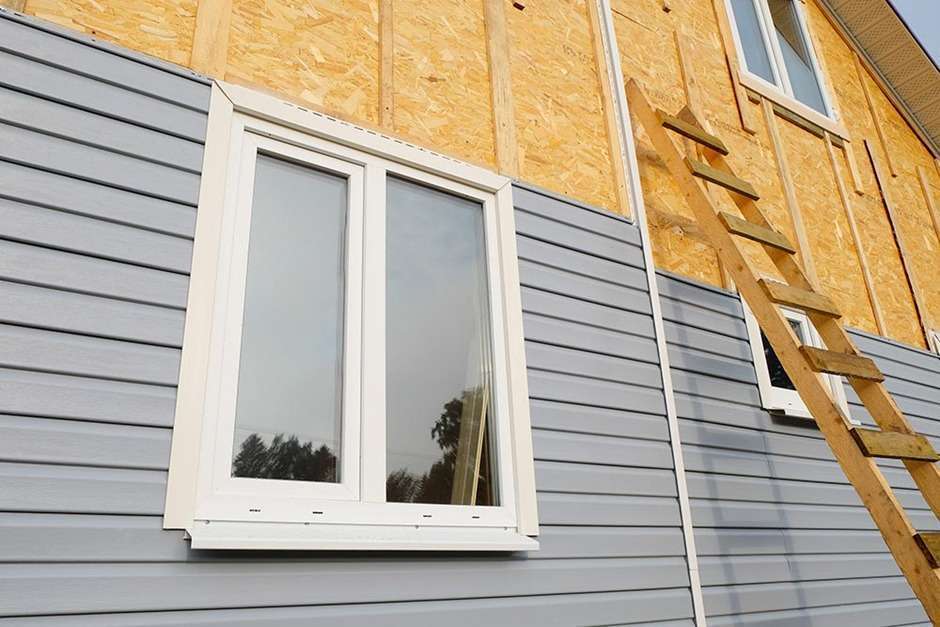
- Factors influencing vinyl siding’s longevity
The following are some of the variables that may shorten the life of vinyl siding:
- Quality of the siding:
One of the main things that will determine how long the vinyl siding lasts is its level of craftsmanship. Higher-quality vinyl siding can last longer since it is constructed with better UV protection and stronger components.
- Climate:
The vinyl siding’s longevity may also be impacted by the climate where it is put. Installing vinyl siding in a warm climate may extend its lifespan compared to installing siding in a severe region with severe storms or temperatures.
- Level of maintenance:
Even though vinyl siding requires little upkeep, it should still be cleaned and inspected frequently. Improperly maintained vinyl siding is more prone to fading, cracking, and other problems as time passes.
- How to make vinyl siding last longer
You may do several things to increase the longevity of your vinyl siding, such as:
- Choose high-quality siding:
Make sure you choose vinyl siding from a reputed manufacturer and that it is of a high grade.
- Install the siding properly:
For appropriate installation and sealing, vinyl siding needs to be done by a certified specialist.
- Clean and inspect the siding regularly:
In order to spot any symptoms of deterioration or harm, vinyl siding should be washed and examined at least once a year. Any harm that occurs needs to be fixed right away to stop it from becoming severe.
- Advantages of vinyl siding
Vinyl siding offers a number of advantages, including:
- Durability:
Vinyl siding is an extremely resilient fabric that can tolerate a wide range of weather circumstances.
- Low maintenance:
Vinyl siding just needs to be cleaned once a year and takes very little upkeep.
- Affordability:
Siding made of vinyl is a reasonably priced choice.
- Variety of colours and styles:
You may choose from a huge range of colours and designs for vinyl siding to create the ideal aesthetic for your house.
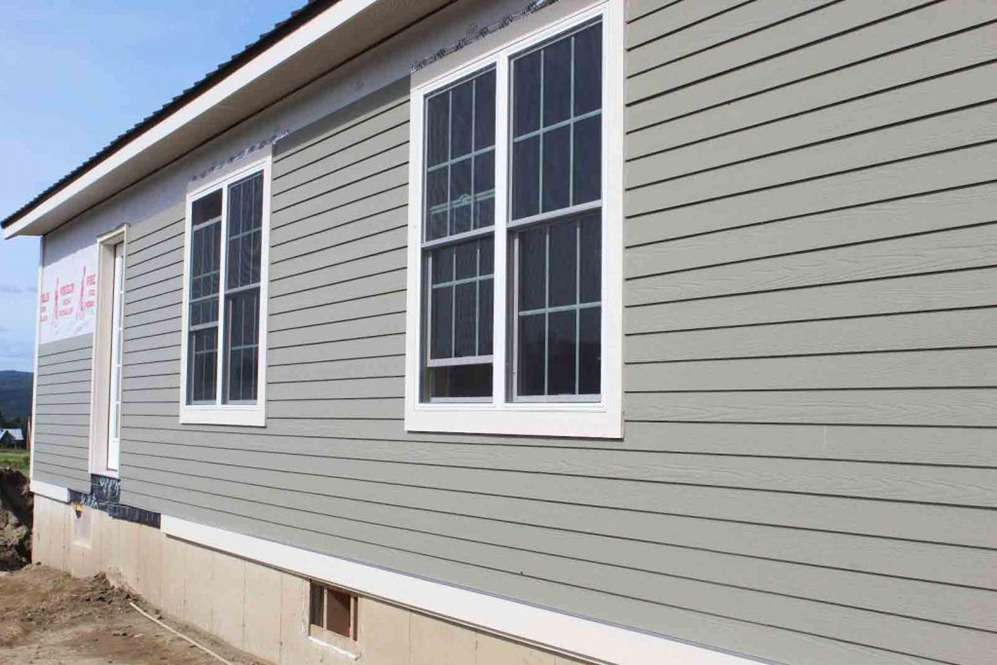
4. Cons of using vinyl siding
Additionally, vinyl siding has a few disadvantages, such as:
- Can be damaged by extreme heat:
Selecting vinyl siding with a high heat deflect temperature is crucial since vinyl siding is susceptible to harm from intense heat.
- Can be susceptible to hail damage:
Selecting resistant-to-impact vinyl siding is crucial since vinyl siding is prone to storm damage.
- May not be as aesthetically pleasing as other siding options:
Certain individuals believe that vinyl siding lacks the visual allure of alternatives like brickwork or wood siding.
5. Additional tips for increasing the lifespan of your vinyl siding:
- Steer clear of strong chemicals when cleaning your siding. All that’s required to keep your siding looking brand-new is a little bit of water and a little soap.
- Think about applying a sealer to your siding if you live in a breezy region to help shield it from the weather.
- In order to keep nearby trees and shrubs from brushing against your siding and causing damage, trim them.
- Periodically check your siding for any indications of deterioration. If damage is discovered, take quick action to fix it before it gets severe.
You can prolong the life of your vinyl siding by paying attention to these pointers.
6. Types of vinyl siding
The three main types of vinyl siding are:
- Solid vinyl siding:
The most resilient kind of vinyl siding is solid vinyl siding. It is constructed with a robust UV coating and an extensive covering of PVC materials. Though it costs more than other kinds of vinyl siding, solid vinyl siding has the longest lifespan.
- Insulated vinyl siding:
Your home’s thermal performance may be raised by the layer of insulating foam underlay found on heated vinyl siding. Although heated vinyl siding usually costs more than solid vinyl siding, over time it can result in savings on electricity for you.
- Non-insulated vinyl siding:
The most costly kind of vinyl siding is non-insulated vinyl siding. It is constructed without an insulating foam base coating and uses a thinner covering of PVC materials. Although non-insulated vinyl siding is a decent choice for homes with limited funds, it is not as strong as solid or insulated vinyl siding.
7. Selecting the appropriate kind of vinyl siding
The following elements should be taken into account while selecting vinyl siding for your house:
- Your budget:
Vinyl siding comes in an assortment of costs. Prior to buying, it’s critical to establish a budget to ensure you can choose siding that both suits your wants and within your means.
- Your climate:
You should pick siding that is resilient to weathering if you live in a severe region with fluctuating temperatures or other types of severe weather. In tough conditions, solid vinyl siding is a suitable option for homes.
- Your home’s style:
There is a large range of styles and colours available for vinyl siding. It’s critical to select siding that blends nicely with your home’s design.
- Installing vinyl siding
For appropriate installation and sealing, vinyl siding needs to be done by a certified specialist. Inadequate installation may result in leaks, draughts, and further issues.
- Maintaining vinyl siding
Even though vinyl siding requires little upkeep, it should still be cleaned and inspected frequently. Once a year, vinyl siding should be cleaned using a mild soap and water solution. Any harm that occurs needs to be fixed right away to stop it from getting severe.
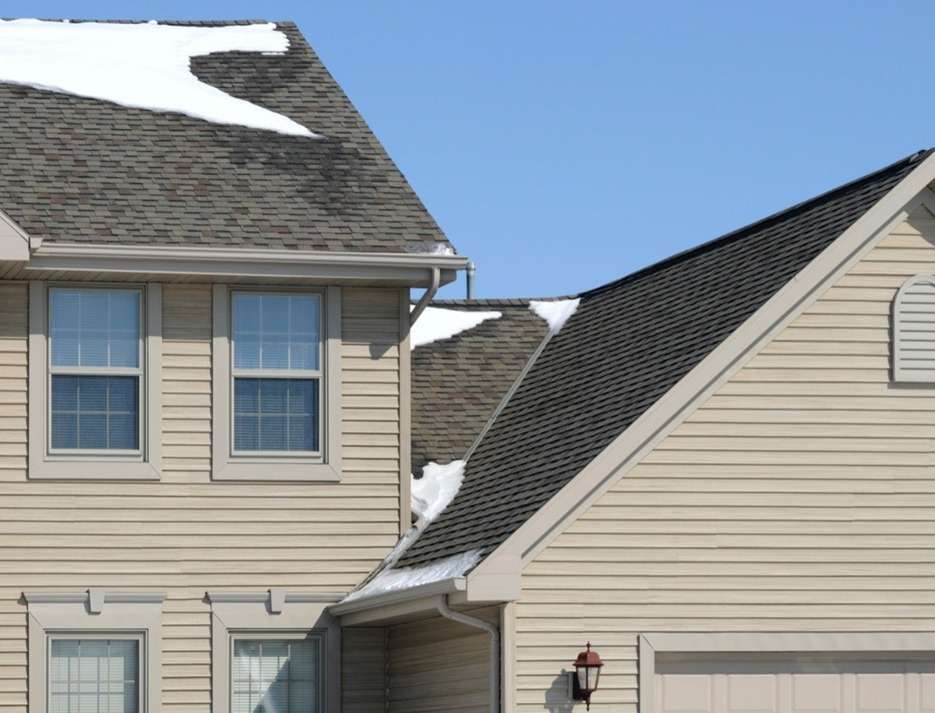
8. Indications that it’s time to get new vinyl siding
It’s time to consider upgrading your vinyl siding if it’s more than 20 years old. Over time, even vinyl siding of the highest calibre will begin to exhibit indications of wear and strain. The following are indications that the time has come to get new vinyl siding:
- Fading:
Vinyl siding is susceptible to fading as time passes, particularly if it is frequently exposed to strong sunlight.
- Cracking:
With time, vinyl siding may develop cracks, particularly if it is subjected to harsh climates or temperatures.
- Warping:
Over time, vinyl siding may deform, particularly if improper installation or maintenance is performed.
- Missing or damaged panels:
To stop leaks, draughts, and other issues, it’s critical to replace any missing or damaged vinyl siding pieces as soon as feasible.
Talking with an experienced expert is usually a smart option if you’re uncertain if it’s time to change your vinyl siding.
9. Conclusion
For a house, vinyl siding is a long-lasting, reasonably priced, and low-maintenance siding alternative that can endure for 20 to 40 years. But in order to make sure that the roofing lasts as long as possible, it’s critical to select high-quality material and apply it correctly.



